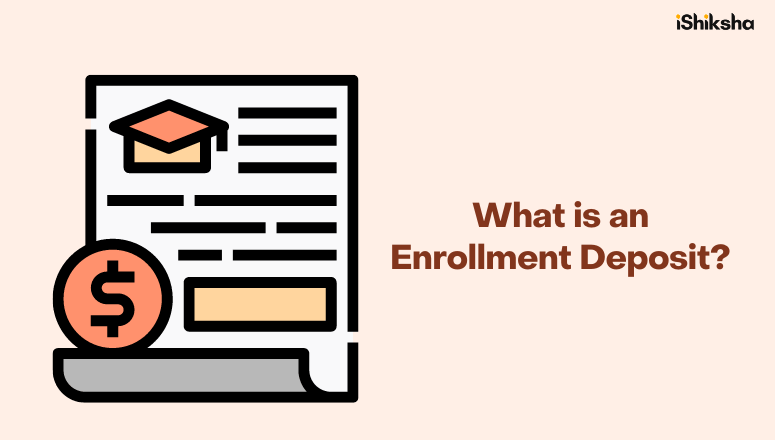Heading off to college is an exciting time in a student’s life! But before you start packing your bags, there are some important things to understand about the enrollment process. One of these is the enrollment deposit.
What is an Enrollment Deposit?
An enrollment deposit is a fee that many colleges require students to pay to confirm that they plan to attend that school. It’s basically like putting down a deposit when you rent an apartment – it holds your spot!
The deposit is usually due sometime in the spring before you start at the college in the fall. The deadline will be included in your acceptance letter from the school. The amount can range anywhere from $100 to $500 or more, depending on the college.
This fee goes toward your tuition and fees for the first semester. It’s not an extra cost, just an upfront payment. Some colleges will apply it directly to your student account, while others hold it separately.
Why is an Enrollment Deposit Required?
Colleges require the enrollment deposit for a few important reasons:
To Get an Accurate Enrollment Count
The deposit helps colleges determine how many students plan to enroll. This allows them to plan housing assignments, schedule classes, arrange orientation programs, and hire the right number of professors and staff to support the new class.
To Lock in Your Commitment
Putting down a deposit shows you are serious about attending that college. It prevents students from putting down deposits at multiple schools and then choosing at the last minute. This helps colleges know their incoming class is solid.
To Cover Administrative Costs
Processing each application takes time and money. The enrollment deposit helps the college cover administrative expenses like reviewing applications, putting together acceptance packets, and preparing to welcome new students.
Cost of an Enrollment Deposit
Typically, enrollment deposits range from $200 to $500, but can be higher at some colleges. For example:
- Public in-state colleges: $200 – $300
- Public out-of-state colleges: $300 – $500
- Private colleges: $300 – $500+
Some deposits are flat fees for all students, while others vary by academic program or housing plans. Be sure to check with each college for their specific deposit amount before making any payments.
Applying the Deposit to Tuition
In most cases, the enrollment deposit goes toward your tuition and fees for the first semester. The college will either:
- Apply it directly to your student account balance
- Hold it separately and later credit it to your account
However, some colleges keep the deposit to cover administrative fees like processing your admission and enrollment. Be sure to ask the financial aid office at each school how they handle enrollment deposits.
Getting a Refund of the Enrollment Deposit
Because the deposit reserves your spot at the college, it is usually nonrefundable. However, some situations where you may get a refund include:
- You are admitted off a waitlist at a college you like better
- Serious illness or injury prevents you from attending
- Significant financial hardship where you can no longer afford to attend
- You are an enlisted military service member who gets deployed
Check with the college’s financial aid office for details on enrollment deposit refund policies and how to request a refund if needed. Don’t count on getting the deposit back though unless special circumstances apply.
Enrollment Deposit Waivers
Some students receive a waiver of the enrollment deposit, meaning they don’t have to pay it. This occurs most often for:
Students with extreme financial need who cannot afford the deposit
Top academic applicants who the college wants to incentivize to attend
Ask the financial aid office if you qualify for a waiver if paying the deposit would be a hardship. Some colleges automatically waive deposits for very low income applicants when awarding financial aid.
Enrollment Deposits for International Students
International students required to get a student visa may have different deposit rules. Some things to know:
- Deposit may be higher – $500+ in some cases
- Deadline to pay may be earlier
- Deposit likely won’t be refunded if visa denied
- Deposit may be put toward costs like international orientation or health insurance
Be sure to clarify the deposit amount, deadline, and policies with the college’s international student office.
In Summary
While enrollment deposits add to the cost of college, they serve an important purpose for both students and colleges. Paying the deposit solidifies your spot at a college and shows you are committed to attending. Colleges depend on deposits to plan for incoming students.
Be sure to find out the deposit amount, due date, refund policies, and how the payment gets applied to your student account. If you have any issues paying the deposit, ask about getting a waiver. With some planning and understanding, the enrollment deposit process doesn’t have to be confusing.

